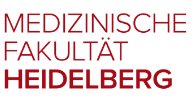Highlights of the past years
2016
2. Heidelberg Liver Tumor Symposium 12.03.2016
Latest findings in therapy of cholangiocellular carcinoma
- At the 2. Heidelberg Liver Tumor Symposium, which took place at the University Hospital Heidelberg on March, 12th 2016 experts of the LCCH discussed new diagnostic approaches, therapies, and study concepts together with regional liver tumor clinicians. This time the focus was on tumors of the intra- and extra hepatic bile ducts and the gall bladder, as the occurrence of these tumors increases while prognosis is still poor. Early detection of these tumors also remains an so far unsolved problem. However, immunotherapy shows first promising results and the future can be seen in the individualized therapy on the basis of molecular and morphological marker.
March 2016
- The Institute of Pathology was awarded as an ESP Advanced Training Centre (EAT) for Liver Pathology and Molecular Pathology. The programme supports education in these highly specialized areas of Pathology of ESP Giordano grant holders for a three months’ guest residence in Heidelberg.
European Society of Pathology (ESP), Key Activities and Services EAT Centres
2015
1. Heidelberg Liver Tumor Symposium 14.03.2015
Latest findings in therapy of hepatocellular carcinoma
- The experts of the LCCH discussed new therapy strategies together with regional liver tumor clinicians at the 1. Heidelberg Liver Tumor Symposium that took place at the University Hospital Heidelberg on March, 14th 2015. The focus was on the latest findings in therapy of the hepatocellular carcinoma.
Rudolf-Virchow-Price of the DGP for PD Dr. med. Beate Straub
- At the 99. Annual meeting of the German Society for Pathology (DGP), PD Dr. med. B. Straub of the Institute of Pathology (University Hospital Heidelberg) was awarded with the Rudolf-Virchow-Price 2015 for her outstanding research work on hepatocellular steatosis: „Perilipin discerns chronic from acute hepatocellular steatosis“.
New clinical trials HCC within the Umbrella-concept
Introduction of the Umbrella-concept for cholangiocarcinoma (CC)
2014
Expansion of the study portfolio (Umbrella-concept) HCC
- Start of new clinical trials
Foundation of the German Alliance for Liver Cancer (GALC) with funding of the http://www.deutsche-leberstiftung.de/Forschung/leberzellkrebsGerman Liver Foundation
- The alliance currently consists of six centers recognized for innovative therapy and translational research on liver cancer. Aim is to support the translational liver cancer research, particularly clinical trials and common research work, to spread and anchor the latest developments in the circle of hepatologists, as well as to improve the public and professional perception by coordination and cooperation of the centers. The GALC works intensely on the introduction and implementation of clinic and diagnostic relevant studies, on the integration into clinical health care structures, and a coordinated data platform for all sites to support common examinations, diagnosis, and personalized therapy of liver cell cancer.
Rudolf-Virchow-Price of the DGP for PD Dr. med. Thomas Longerich
- At the 98. Annual meeting of the German Society for Pathology (DGP), PD Dr. med. T. Longerich of the Institute of Pathology (University Hospital Heidelberg) was awarded with the Rudolf-Virchow-Price 2014 for his outstanding research work on hepatocellular carcinoma: “EEF1A2 Inactivates p53 by Way of PI3K/AKT/mTOR-Dependent Stabilization of MDM4 in Hepatocellular Carcinoma”.
2013
Comprehensive study program (Umbrella-concept) for HCC
- Pre-registration of patients who could profit from new therapies/ clinical trials during the course of their disease
- Prospective testing of biomarkers (Pathology) and systematic assignment to trials
2012
Liver Cancer Center Heidelberg (LCCH)
Foundation of the multidisciplinary liver cancer center with participation of all relevant disciplines (general surgery, gastroenterology and hepatology, medical oncology, pathology, diagnostic and interventional radiology, radiotherapy, nuclear medicine) with daily consultation hours and weekly tumorboards.
University Hospital Heidelberg is the leading liver pathology center
At the University Hospital Heidelberg, more than 4.000 liver pathology cases are examined per year.
Hepatobiliary surgical and transplant center
In 2012, 19 HCC were removed and 19 liver transplantations for HCC were successfully conducted.
Comprehensive innovative and interdisciplinary clinical activities / achievements
- Tumorboards twice a week, specialist and medical service
- Innovative treatment approaches (e.g. radio embolisation, heavy ion treatment (phase-I-study)
- Percutaneous hepatic perfusion/chemosaturation, treatment with oncolytic viruses (phase-II-study)
2010
Foundation of the largest research consortium in Europe for HCC
SFB/TRR 77 Heidelberg/Hannover
Speaker: Prof. Dr. Peter Schirmacher
The consortium aimed to investigate the molecular mechanisms that induce and promote liver cancer and to explore their potential for therapeutic application (more than ten projects located in Heidelberg, various high-impact publications).
This consortium already gained decisive insights into the genetic, molecular, and cellular mechanisms of hepatocarcinogenesis.
Examples:
- on the first feasible high-throughput in vivo screening model in cancer research (Wuestefeld et al., Cell 2013)
- definition of senescence surveillance (Kang et al., Nature 2011)
- novel concepts how hepatitis C viruses induce persistence (Ruggieri et al. Cell Host Microbe 2012)
- mechanisms of hepatic metabolic dysfunction as part of the cancer cachectic phenotype (Jones et al. EMBO Mol Med 2013)
- description of novel oncogenic mechanisms and pathway interactions (e.g., Singer et al. Mol Cell 2012; Tschaharganeh et al. Gastroenterology 2013, Pusterla et al. Hepatology 2013, Hämmerle et al. Hepatology 2013, Bauhofer et al. Gastroenterology 2012, Buitrago-Molina et al. Hepatology 2013, Buurman et al. Gastroenterology 2012, Neumann et al. Hepatology 2012, Woller et al. J Clin Invest 2011, Urbanik et al. J Hepatol 2012, among others)

